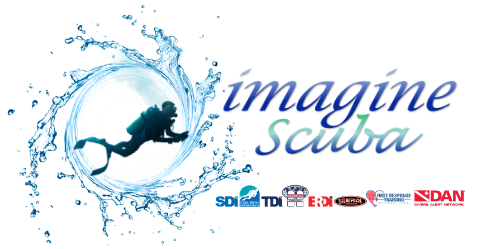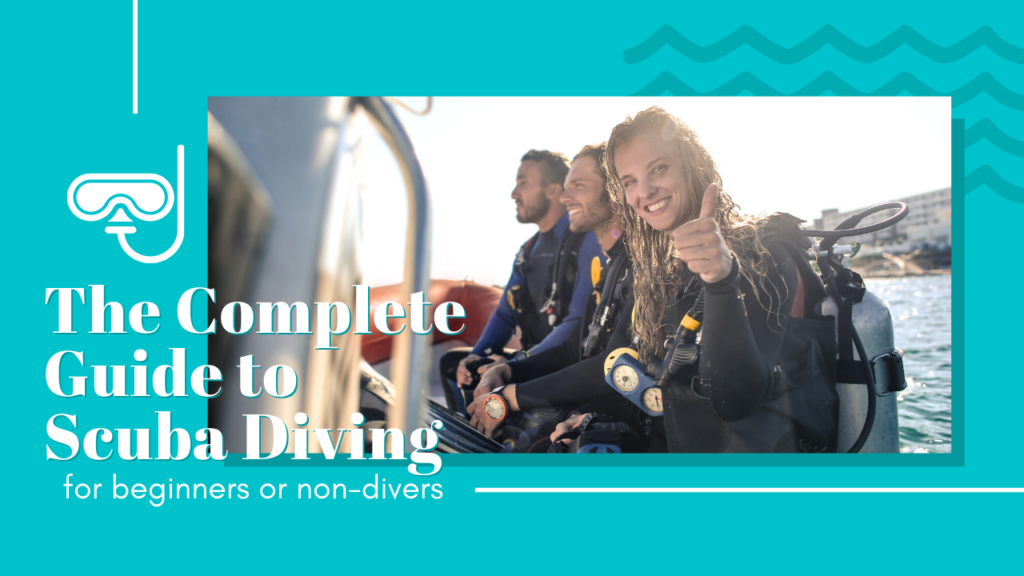“Being divers makes us different. It makes us special. As divers, we see and do things few can even imagine (and fewer still experience). We discover the true nature of Planet Earth — the Water Planet — and how critical this precious resource is to our survival.” – Brian Carney
What to Expect from Both the Classes and Diving
When looking into scuba diving, you generally have an idea of what you would like to do as a diver. This may vary in the future, but most divers think of traveling to new places and seeing new things. SDI is recognized worldwide with twenty-six regional offices in multiple countries. SDI’s core curriculum is very similar to other agencies, but where we differ is how the instructor teaches their students. Most diving agencies have set steps that the student must pass in order to continue onto the next task, while SDI instructors can be more flexible. If the student is uncomfortable or cannot complete a task, the instructor can move onto a different task and then can come back to the first task at a later time. This approach allows the student to become comfortable in the water and with their gear, which creates a better experience for the diver altogether. A good article for the duration of the course can be seen here.

How to Find a Shop and What to Look For
Now you know what to expect from diving and the course. Next, you’ll need to find a shop to start. Here is a good article to help you find a great dive shop. After you’ve read what to look for in a dive shop, you can search online here to find a dive shop near you. They will help you start your course and also acquire the gear you need.

Necessary Equipment
- Starting out:
- Next step:
- Dive Computer
- Buoyancy Control Device (BCD)
- Regulator & Octopus
- Submersible Pressure Gauge (SPG)
- Wetsuit
- Add-ons
- Flashlight(s)
- Knife
- Compass
- Weights
- Hood and/or Gloves
- Tank
- Safety Sausage or Flag and a Reel
- Camera
As you can see the equipment that you will need starting out might be gear that you already own. Most dive shops allow students to rent the necessary gear to actually dive, so they don’t have to sink too much money into a new sport or hobby. If you truly enjoy diving and want to go out all of the time, it’s highly advisable to invest in your own equipment. There are many advantages in owning your own gear. In the long run, you will end up saving money. By owning your own gear, you will have the time to get to know and understand it better and therefore become a better diver. The add-ons are fun (if not needed) equipment, depending on what you would like to do or become as a diver.

Diving Etiquette
Diving, just like anything else in life, has a few rules to abide to:
- Always assist a diver in need
- Diving with a Buddy
- Conservation
Tips and Tricks
- How Logging Your Dives Can Make You a Better Diver Article
- 3 Mistakes Most Divers Make Article
- 10 Training Tips for Newly Certified Divers Article
- Scuba Slang to Help New Divers Get Their Sea Legs Article
- Things Divers Should Never Do Article
- The Trick to Getting More Time Out of Your Tanks
What’s Next After Earning Your Certification
- Scuba Diving – It’s Not Just for Vacation
- Continue your education
- Explore your local areas
- Travel
- Make new friends
Once you obtain your Open Water Certification, there really is no stopping where your education will lead you. There are many programs through SDI, TDI, ERDI, PFI and First Response Training International that will broaden your horizons, challenge you in ways you never thought possible and expand on the education that you’ve already acquired. Exploring your local areas will help you sharpen those skills and will help you build confidence as a scuba diver. But you probably started this journey to become a scuba diver so you can travel and see the underwater world. You can go practically anywhere and find a spot to dive. Just think of all of the divers who are nowhere near the ocean and still find amazing and unique diving sites. Explore the internet and see what interests you most, but make sure that your current certification can get you to that dive site. You might need to dive deeper than what you currently can, or go at night to see some neat marine life. Those are all courses you can take. While out diving at any location, if you spot another diver, don’t be shy. Go talk to them! Diving is a great way to meet new people with broad backgrounds from all over the world.
Brian Carney has a good quote for new divers: “Welcome to our world. (It is, after all, your world, too — although you may be about to discover its true nature for the first time.) We hope the experience is every bit as special for you as it is for us.”
By Jessica Brown

